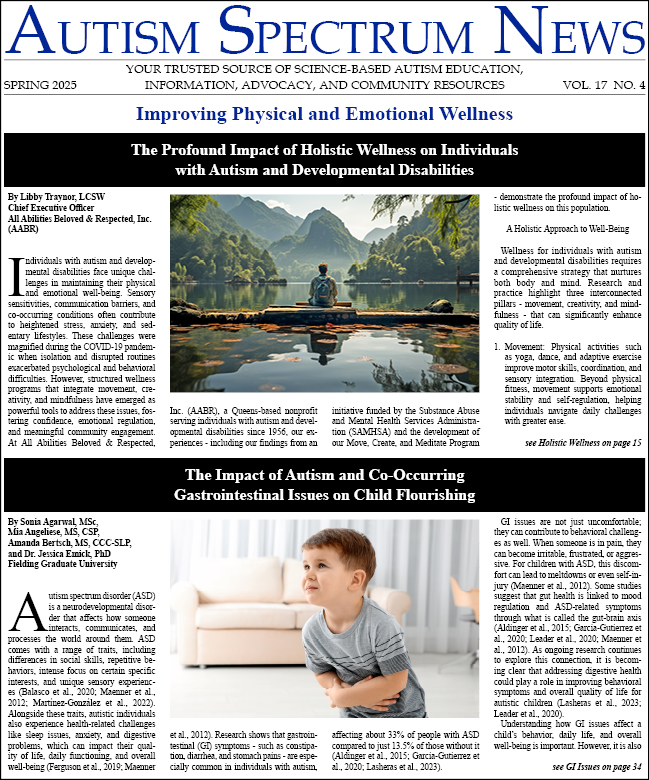-
The Daniel Jordan Fiddle Foundation Adult Autism Fellowship at the Medical University of South Carolina: Advancing Direct Care Services to Improve Outcomes
In 2023, about 22.5% of people with a disability in the U.S. were employed, a shocking contrast to their age-matched, non-disabled peers that are employed at 65.8% (U.S. Bureau of Labor Statistics, 2023). Over the next decade, a significant number of youth with Autism Spectrum Disorder (ASD),...
-
Overcoming Barriers in Math Education and Assessment for Autistic Children
In the 21st century, there is no disagreement that a math education is considered important for all students, including those with disabilities or Autism Spectrum Disorder (ASD), so that their access and success contribute to the development of skills necessary for an independent life. Good...
-
Artificial Intelligence in Education: Benefits and Risks for Neurodivergent Students
Artificial Intelligence (AI), seemingly all of a sudden, has permeated our world. New advances in technologies have the potential to assist students inside and outside the classroom and increase the potential for independence and success. AI can be used by educators to support students. It can be...
-
What Families With Autism Should Consider When Evaluating School Programs
One of the greatest challenges parents of children with disabilities face is finding the most appropriate educational program. When searching for a school for a child with autism spectrum disorder (ASD), the task can be complex. Understanding instructional and social variables can help parents make...
-
Supporting Autistic Adults: Am I College Ready?
Am I college ready? Such a question drew the attention of high school senior students in college readiness sessions at AHRC New York City’s Middle/High School. College readiness encompasses academic, social, and emotional learning support for students with autism and intellectual disabilities to...
-
Supporting Students’ Self-Regulation Needs: An Occupational Therapy Perspective
Self-Regulation is an individual’s ability to process and manage behavioral and emotional reactions to what is happening in their immediate environment. Throughout the day, a child’s nervous system is constantly attempting to process the sensory components of opportunities presented to them....
-
Setting Students Up for Success: Balancing Sensory Needs in the Classroom
Sensory considerations play a key role in developing a classroom environment conducive to learning. When classrooms are arranged with sensory needs in mind, teachers will often see increased levels of social participation and task engagement. Some students face challenges finding their voice in a...
-
Advocating for Sensory-Inclusive Education: IEPs, Classrooms, and Schools
There are many lists and suggestions for sensory-inclusive education for autistic students. Gaining a sense of your student’s unique sensory profile – what causes distress or helps them stay regulated – is important. They may be impacted differently at school than at home. How can a caregiver...
-
Supporting Sensory Diversity: Building Inclusive Classrooms
Traditional classrooms were initially designed in the early 1900s, and some school districts have retained a similar structure. These settings typically involve large groups of children seated, remaining stationary, and primarily learning through listening and reading. Traditional classrooms...
-
The Role of Sensory-Focused Education in Inclusive Classrooms
In inclusive classrooms, all student learners have strategies, techniques, support, respect, and a welcoming environment to promote academic success (Webster, 2014). Inclusive classrooms require the integration of differentiated instruction tailored to the unique academic, mental, and physical...





